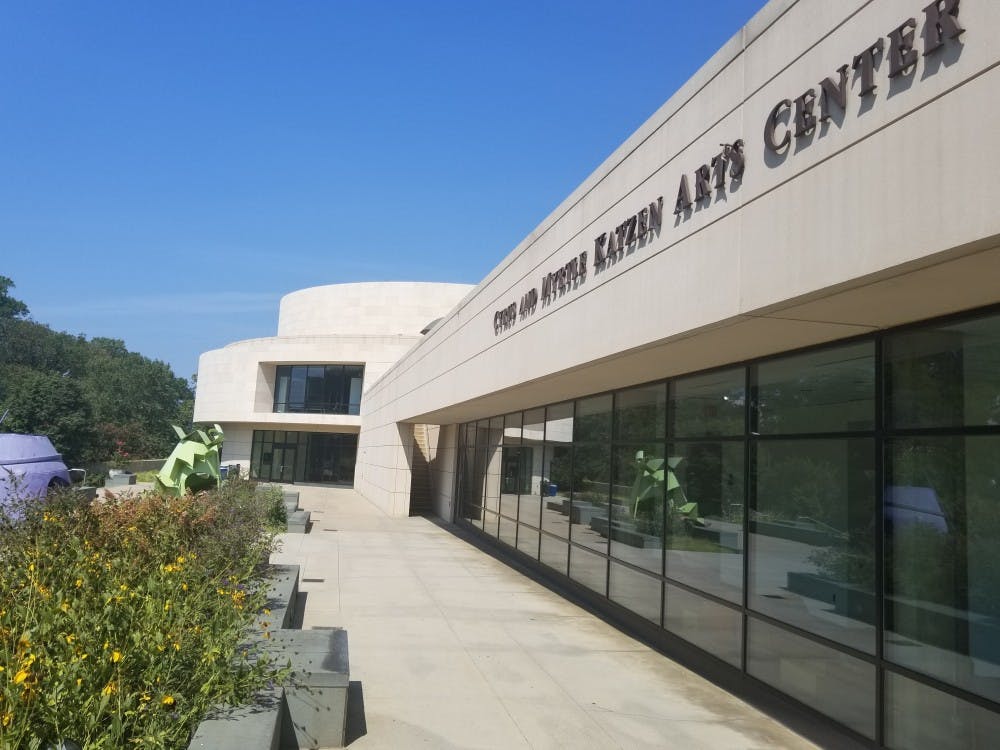Nina Larson, a 2019 American University alum, died Nov. 13 after she was struck by a car while crossing a street in the Adams Morgan neighborhood.
The second pedestrian death last week, Larson’s death comes just months after D.C. officials pledged to end deaths caused by traffic violence. No one has been charged yet.
After graduating from AU’s applied music program in spring 2019, the 24-year-old aspired to be an opera singer. In a statement from the director of the music program, Ann T. Kang remembered Larson for her contributions to the program in an email to music students.
“Nina was a resilient, hardworking, and gifted singer who was preparing for graduate school auditions ... She was at a happy point in her life, excited about the future. It is a shocking and horrible loss,” Kang said.
Linda Haslach-Allison is the musician in residence in the Department of Performing Arts. She has known Larson since she was a freshman and met with her every week during her undergraduate studies.
“The best singers are communicators, and Nina had the rare gift to communicate through her singing, and that is something you can’t teach. I really think music was her purpose in life,” Haslach-Allison said.
Outside of school, Haslach-Allison remembers how Larson used to care for rescued animals.
“I was walking home one day when I found a small stray kitten and knew it needed a home. I immediately thought of Nina, she was always fostering animals and the type of person that any animal would come to,” Haslach-Allison said. “And of course, Nina took the kitten.”
Barbara Wilkinson is a pianist and vocal coach in the Department of Performing Arts. Wilkinson had been working with Larson to prepare pieces for her graduate school applications and they were hoping to record the final vocals within the following weeks.
“We had only had seven sessions together, but Nina was one of those people you are immediately drawn to. She was so generous and had such a vibrant radiance about her. The world has lost a beautiful soul and beautiful voice,” Wilkinson said.
Elizabeth Anderson, who lived with Larson since August, said she remembers Larson’s singing.
“She was always smiling, even after a long day of work,” Anderson said. “One of the more sweet surprises living with Nina was hearing her practice singing, it was always so beautiful.”
Anderson also remembers Larson’s love for fostering animals.
“She rescued a stray cat one day, and man, she really loved and cared for it,” Anderson said. “Even if that meant multiple trips to the vet in one day.”
Anderson and Larson’s friends gathered at the site of the crash on Tuesday to remember Larson.
“Nina had so much to look forward to. She left a big gap behind, and we will miss her presence dearly,” Wilkinson said.
Christian Damiana is the area’s advisory neighborhood commissioner and an AU senior. He said he was heartbroken to hear the news of Larson.
“All traffic violence is very heartbreaking, but this death really shook me because it was an AU alum not much older than us,” Damiana said.
As an ANC commissioner, Damiana is the neighborhood’s official voice in advising the district’s government and federal agencies on issues that affect his neighborhood.
Damiana’s work focuses on protecting vulnerable road users like bicyclists and pedestrians. He has worked for the League of American Bicyclists for over six months, where he advocated for federal legislation to keep bicyclists safe and make green modes of transportation more accessible.
Larson is one of many victims of traffic violence in D.C., as the city reaches record levels of deaths caused by drivers. Metropolitan Police data shows 37 traffic-related deaths in 2021, making it the most fatal year since 2008.
In 2019, D.C. council members introduced the D.C. Vision Zero Enhancement Omnibus Amendment Act, which outlines the city’s goal of zero traffic fatalities and injuries by 2024. Although the approved bill has become law, many components of the bill still require city funding. The Vision Zero enhancement mandates new sidewalks and sidewalk connections, reduces the speed limits to 20 miles per hour on certain roads and demands new public space permit applicants to include pedestrian infrastructure.
Damiana criticized Mayor Muriel Bowser and the District Department of Transportation for treating Vision Zero as a slogan rather than legitimate policy guidance
“Her death was preventable, and the D.C. government failed to keep her safe,” Damiana said. “This is going to happen again because the D.C. government is not taking enough action to prevent these deaths from happening, and the executive branch needs to be held accountable.”





